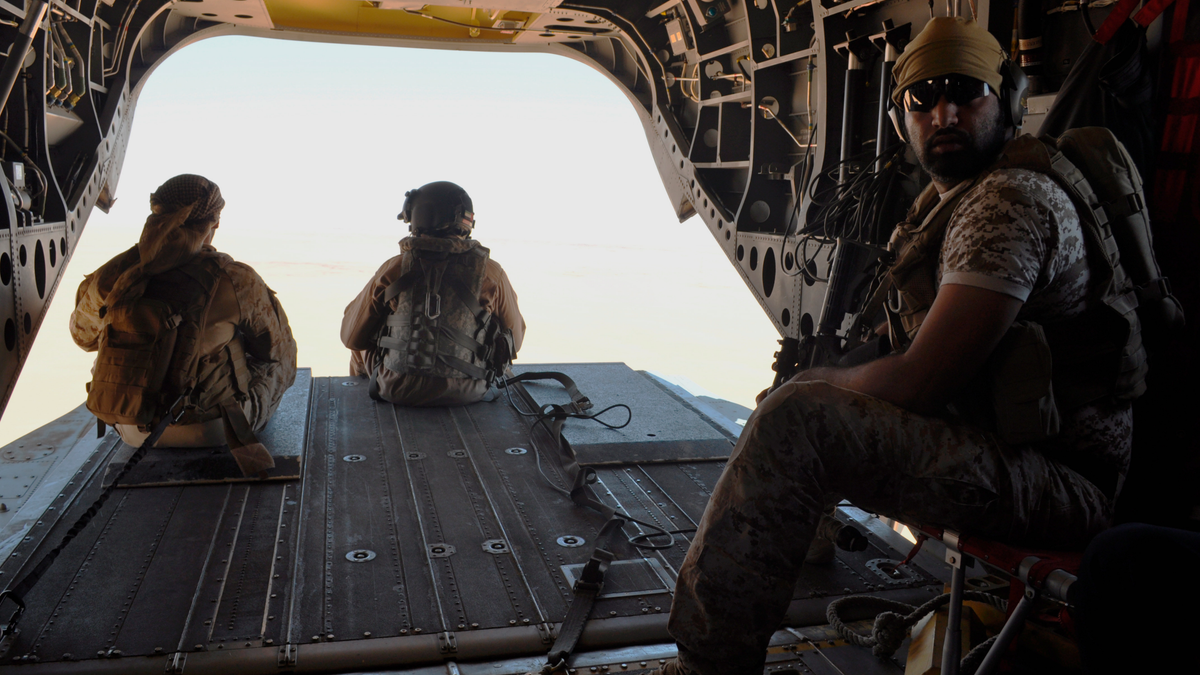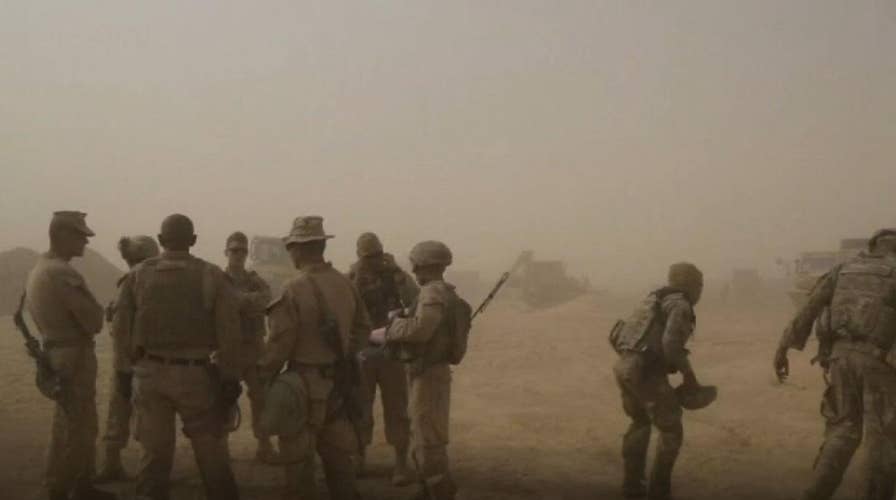Iranian-backed rebels in Yemen claim responsibility for drone attacks on Saudi oil pipelines
The Pentagon increases America's military footprint in the Middle East to counter an unspecified Iranian threat to U.S. troops.
The future of Yemen is shrouded in speculation amid reports this week that the United Arab Emirates (UAE) are abruptly withdrawing their troops from the Saudi-led onslaught on the neighboring nation.
Since early 2015, the UAE has served a key ally to Saudi’s efforts to dislodge the Iran-backed Houthi rebels from large swaths of the nation – providing thousands of ground troops as well as weapons and money – in a war that has come under massive scrutiny and condemnation from the wider international community over concerns of high civilian casualties.
Essentially, the pullback is believed to be associated with a high cost that could no longer be justified even by oil-swathed region.
“It is very hard to estimate how much the war effort has cost the Emiratis but it runs into the billions before counting aid and development assistance. But the big cost has been to their reputation, which they really cherish,” Peter Salisbury, a senior analyst for Yemen at the International Crisis Group. “They have faced sustained criticism for their part in the war, including in Washington, in ways that Abu Dhabi probably didn’t anticipate.”
And thus after weeks of declarations from Emirati officials indicating that a phase-out will take place, “Emiratis are withdrawing their forces at a scale and speed that all but rules our further ground advances,” according to the New York Times.
FEARS US WEAPONS ARE FALLING INTO THE 'WRONG HANDS' DURING CHAOTIC YEMENI WAR
“Given that the UAE had more ground forces in Yemen than Saudi Arabia did, the cost was likely a factor leading to this decision. The speed of their drawdown is surprising,” noted Varsha Koduvayur, a senior research analyst for the Gulf States at the Foundation for Defense of Democracies (FDD). “It shows that Abu Dhabi is eager to mitigate any damage its reputation suffered stemming from its Yemen involvement, particularly as anti-Saudi sentiment grows in Congress and Capitol Hill seeks to hold the Saudis accountable on that front.”
She underscored that the decision to drawdown is not surprising though, as “the UAE has wanted to wind down its role in Yemen for years and hand off responsibility to UAE-trained local units in Yemen.”

In this Sept. 14, 2015, file photo, Emirati soldiers stand guard out the rear gate of a Chinook military helicopter traveling from Saudi Arabia to Yemen. The United Arab Emirates has drawn down the number of its troops in Yemen, but has not withdrawn from the country and remains a key member of the Saudi-led coalition at war there, a senior Emirati official confirmed Monday, July 8, 2019. (AP)
Officially, Emiratis have pinned the scale-back as being in line with the fragile peace-deal brokered by the United Nations in December to cease the fighting in the port of Hudaydah, a strategic hub for humanitarian supplies and economic lifeline for the war-torn country.
And despite questions over how the drawdown may have inflamed their close-knit relations with Saudi Arabia, Riyadh has remained firm that two countries are aligned on their Yemen objectives. The Pentagon, which has long come under its own criticism for selling weapons to the Saudi coalition and for its own involvement with regards to intelligence sharing the refueling of planes, is said to pushing for a diplomatic solution to the conflict.
The troop shakeup has subsequently prompted Saudi Arabia’s military to deploy a stronger presence of its own to the Red Sea ports this week, Reuters noted.
What it means for the next chapter of the war, remains unclear.
“The big question is whether or not Hodeida is now off the table, and that is not yet clear. The main fighting force on the ground is Yemeni and is still in place; what the UAE drawdown does is remove coordination and air support,” Salisbury explained. “If the Saudis step in and perform the same role, that makes an assault on Hodeida possible, although I wouldn’t rate the chances of success highly. That would trigger a worse conflict and widespread famine. But if these forces just remain in a holding pattern we have a largely stalemated conflict in which the best next move is peace talks.”
YEMEN'S WAR ON BODY PARTS SPARKS COTTAGE INDUSTRY IN PROSTHETIC LIMBS
However, Emiratis will keep its footprint – albeit reduced – in the southern city of Aden, the Times reported. Aden has become a de-facto capital for Saudi-supported government officials in Yemen given that the Houthis seized control of the capital Sana’s in 2014, prompting the launch of Saudi’s bombing campaign in March 2015 with strong support from the UAE, the United States, and other regional allies.

A civilian left for dead near his home in Sana'a, Yemen (Fox News/Hollie McKay)
As it stands, Yemen is a mish-mash of warring factions with the Shia-centered Houthi militias in the north and Al Qaeda-centric militias dominating eastern swaths of the country. But the past four years, in particular, has seen the country – which was already the poorest in the Middle East – descend into a humanitarian nightmare that has claimed the lives of more than 100,000 from combat alone with scores of others dying from starvation, malnutrition and the return of once ancient and eradicated diseases.
The quest for an end to the turmoil is far from realized.
"UAE’s withdrawal makes it less likely that the Hadi government and its Saudi allies can defeat the Houthis,” Defense Priorities Policy Director Benjamin H. Friedman. “Hopefully that will encourage a peace agreement that ends Saudi involvement in the civil war, which in turn could lead to a settlement of the civil war among Yemeni parties. The UAE withdrawal should somewhat reduce the intensity of the war and mildly improve conditions for Yemeni civilians."









































